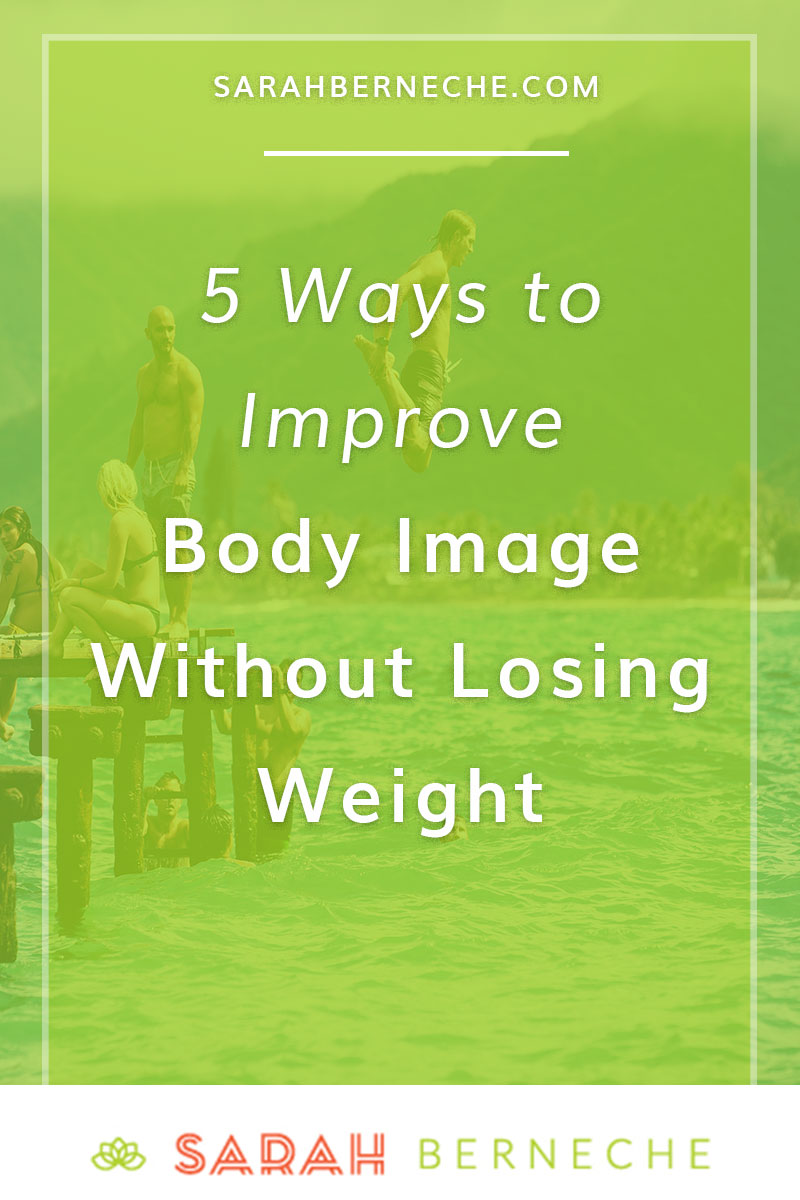Many people I speak to about intuitive eating are drawn to its 10-principle framework for making peace with food and the body. For those possessing histories fraught with dieting, weight cycling, and self-loathing, the prospect of intuitive eating feels Heaven-sent.
Prospective clients will share how they’re open to challenging the diet mentality and examining their own complicated history with body size and shape manipulation. Perhaps they’re intrigued by (and even excited about) adopting an all-foods-fit philosophy. Maybe they want to extricate themselves from wellness culture and the temple of clean eating.
But shelving the weight-loss goals and accepting your body for what it naturally is? That’s something else entirely.
While many folks come to intuitive eating carrying hopes of weight loss or weight maintenance — so expected given the pressures our culture places, particularly (though not exclusively) on women — this perceived conflict prevents some from doing the deeper work inherent to the intuitive eating process.
I say perceived because just about everyone I speak to not only wants to make peace with food, but they also want to feel better in their bodies.
And you know what?
Weight loss doesn’t offer this because it can’t correct poor body image.
I know this because I’ve worked with women (and some non-binary folks) in all kinds of bodies. I’ve worked with women in smaller bodies who hate the way they look, and women in higher-weight bodies who love their curves. There are plus-size models rocking crop tops and body con dresses, and thin women who feel self-conscious wearing anything other than an oversized sweater and loose-fitting yoga pants.
So if you feel you need to lose weight before starting intuitive eating, are concerned about potential weight gain during the intuitive eating process, or can’t imagine liking — never mind loving — your body the way it is, I’d say you’re actually in the right place.
Here’s five tips to help you to improve your body image today — in your today body:
-
Spend more time with people who have a positive body image. While fat talk — you know, where (predominantly) women trash-talk their bodies to glean social acceptance and a positive social standing — can lead to body dissatisfaction, a study revealed that those with a positive body image purposefully chose not to associate with peers who engaged in negative self-talk and intentionally surrounded themselves with people who spoke positively about their bodies. Also, here’s a hot tip: studies have also shown that engaging in fat talk doesn’t make you more likable. What do we hope to gain from being so mean to ourselves? The short of it: do your best to hang with people who are not dieting.
-
Detox your social accounts. While studies have shown Instagram can and does make us feel worse about ourselves, you can actually use Instagram in two meaningful ways — to support point #1, as well as to more broadly conceptualize beauty. I recommend unfollowing accounts that leave you feeling worse off than before, especially if the account owner engages in self-objectification, and sourcing accounts that uplift you. I personally recommend: @aerie, @thirdwheelED, @ifd_bodies, @trustyourbodyproject, @ragenchastain, @fyeahmfabello, @mskelseymiller, @summerinnanen, @fierce.fatty, @_kellyu, @nourishandeat, @4thtribodies, @bodyimagemovement, @bodyposipower, @sonyareneetaylor, @thelindywest, @thefatsextherapist, @diannebondyyoga, @yrfatfriend, @kenziebrenna, @bodyposipanda, @nadiaaboulhosn, @tessholliday, @beauty_redefined, @virgietovar, and more. Short of it: expose yourself to all kinds of bodies of different races and ethnicities, sizes, ages, abilities, etc. This kind of exposure is a critical step to making peace with our own bodies.
-
Offer yourself small acts of kindness. Massages and pedicures are nice and all, but also considerably more advanced, expensive, and time-consuming forms of self-care. As far as small acts go, think of applying a favourite body lotion, listening to your favourite song, wearing lipstick (if that’s your thing — it’s totally mine), buying yourself flowers, or ordering your favourite coffee beverage. While we often think about body image in binary ways (love my body vs. hate my body), small acts of kindness can slowly shift us away from self-loathing and toward body appreciation, trust, and respect. When we engage regularly and consistently, we can begin building a different kind of relationship with our bodies — one founded in self-care rather than self-control.
-
Choose joyful movement. While exercise can be challenging for so many people (do I need to go on?), joyful movement — that is, pleasurable exercise — is helpful for stress relief and may be a way of taking care of our bodies. What kinds of activities, if any, do you enjoy? Perhaps it’s throwing a frisbee, going for a walk with a friend, joining a yin yoga class, riding your bike on a hot summer’s day, rollerblading with your BFF, or jumping on a trampoline. If you are currently in treatment for an eating disorder or disordered eating, please speak to your treatment team before engaging in exercise.
-
Eat regularly, adequately, and consistently. Nourishment is a really vital part of our body image — it’s actually not possible to cultivate a positive body image when we’re malnourished or dieting. By feeding your body and taking a flexible approach to eating, you’re actually strengthening your body image. Bite by bite, you’re helping yourself to like your body a bit more. It may feel counter-intuitive, especially if you feel very connected to the diet-centric paradigm, but listening to and taking care of your body is vital to seeing yourself more positively (or less negatively.)
Which of these tips is your favourite?

Comments +